Venus Fultz reads an excerpt from "Sleep Erlking", now available in Wrongdoing's fourth issue12/19/2022
0 Comments
—Ari Lohr, "A SONG FOR THE GAY BOYS WHO NEVER CAME HOME FROM PRIDE" Gravity, Ari Lohr's newest & from Gutslut Press, precedes the table of contents with four facts about space. The latter just as assuredly introduces its four sections: LOVE, RAPE, DEATH, and NOTHING. Already, we know Lohr will be dragging through the dirt of the world's most traumatic experiences. I felt I had experienced a lifetime with Lohr by the time—and every time—I finished this collection, and yet its power is pure, potent adolescence. Still, despite the heartbreaks and insecurities typical of a (queer) teenage experience—despite the violence, the injustices that still should never be, yet are—Lohr's confidence in expressing those nuances is clear. Overall, I enjoyed Gravity for its exploration of ways that words can take up the page (fitting, I think, for an exploration of space as concept). It jumps through wormholes from prose poetry, to shape poetry and erasure; even more, it weaves narratives together with celestial control. Until the end of the collection, Lohr is not afraid to keep revisiting ideas, themes—entire poems, even, that we'd mistaken for finished punching us in the gut. I quite literally gasped at some of these lines, which of perfectly evokes the author's imagery of being trapped: in outer space, maybe, but also in one's unoxygenated body. In the end, these poems are their own new planets, and each adapts, shapes itself to the material; they build us lifeforms to worship as metaphors for hurting, then healing. Truly, Gravity is a fresh take on material with centuries of contemplation to its name. The title poem is a standout among them all, in my opinion, with so many quotable lines I'd be reciting it all by including them. Of course, I'm not going to do that! Please go ahead and purchase the book to see all of the magic for yourself. Reminder: Gravity is now available for purchase from Gutslut Press (co-run by our Editor Ami Sanghvi!) in both print and digital formats; go, be grateful for the chance to read just like I was.
You can also take a look at Lohr's other work by visiting their website. Angeline Schellenberg reads an excerpt from "Baby Boom", now available in Wrongdoing's fourth issue11/14/2022 Kenneth May reads an excerpt from "Some Other Spring", now available in Wrongdoing's fourth issue11/2/2022 Marisca Pichette reads an excerpt from "The Sheet", now available in Wrongdoing's third issue6/5/2022 Tyler Turner reads an excerpt from "The Hunger", now available in Wrongdoing's third issue5/30/2022 Maddie Bowen-Smyth reads an excerpt from "Mind Your Hat", coming soon in Wrongdoing's third issue5/12/2022 Transcription: "Reading the headstones feels like the polite thing to do but I cannot keep my eyes from the short-lived living. Green-veined white butterflies flicker up like ghosts between the graves and there are so many more ladybirds than I expected. I feel like I should feel something heavier: all these nested bones and wars and moss-skinned grey angels, stones studded with yellow snails the names and dates going out like muffled bells but right now, in this forest of death I do not want to think about dying. Right now I am counting our ladybirds. Right now I am Instagramming leaves. I take your hand in mine and say it must be weird here at night but what I am really saying is that with you, death itself is just a Victorian-themed adventure playground: quaint and delicious; well-scripted, almost fun." Debrah Miszak reads an excerpt from "Gods & Mentors", coming soon in Wrongdoing's third issue5/10/2022 Transcription: "I finger the cake lid off and toss it. We know everything can whittle down to a moment. I walk for miles in the snow 3 AM after fucking the doctor. He drowned swimming the lake away all summer. At the park with the brothers I tell them a metaphor. The fountain is a hole. The mommy is a witch-doll." by Pascale Potvin. I recently had the pleasure of reading Charlie D’Aniello Trigueros’s newest book, Between Death & Flight, before it releases on May 3rd. In epistolary form, this (sometimes fictionalized) creative-nonfiction recounts his experience as a minor detained by ICE, having escaped transphobic abuse from his then-home in the Dominican Republic. The pre-order page from warning lines lit, of which D’Aniello Trigueros is also Editor-in-Chief, describes book as a story of “confinement, stripping of freedom, and existence as an inherently transgressive self”. Knowing my blurb couldn’t ever do justice to its power, I also wanted to have him speak more on it, himself, for the audience of Wrongdoing. As members of online literary communities in common, I was grateful that we shared the following conversation. You have another book forthcoming, too, with Gutslut Press, which is quite exciting. What made you decide to release Between Death & Flight specifically through your own organization, warning lines literary? I do! That book (a poetry chapbook titled PLACES) has been waiting a while to be published, I’m really excited Gutslut picked it up! I think my decision to publish Between Death & Flight via warning lines rather than trying to find an external publisher ultimately comes down to trust. I have to admit I don’t quite trust trad publishing to treat this story with respect; I don’t trust the industry to deem my story marketable, in part because it’s not the kind of story I hear about at all. I guess, also, I wanted to retain as much power over this narrative (this experience) as I possibly could, especially given how powerless I was in the situation Between Death & Flight approaches. It was my way of saying “fuck you, I’m going to tell it the way I know how”. If I’m not mistaken, this is your first book-length publication of creative nonfiction. How has the lead up to release been, overall, in comparison to your other launches? Does it feel more vulnerable than publishing, for example, poetry? It feels a lot more vulnerable than fiction, and moderately more vulnerable than poetry in general. With fiction, I feel like there’s a couple layers of separation (at least from the reader’s point of view). However, my poetry is often also kind-of creative non-fiction, if that makes sense? My poetry is a vessel for my memory and my history (and my trauma!) in a way that feels very similar to creative non-fiction— or at least to Between Death & Flight specifically. That’s probably why my personal journals also invariably end up containing more than a few poems scribbled spontaneously on their pages. But even then, I feel like when I publish poetry I feel slightly less naked (well, okay, sometimes not), because there are truths within my poems that are hidden just enough so as to not be conclusively deduced. Only I get to know the meaning in minute details of my poetry, and that makes it so I don’t feel quite as naked. With Between Death & Flight, on the other hand, there’s truths in there that I had to confront in order to convey them, and they’re right there, plain for everyone to read. This is especially vulnerable since some parts of the book are quotes from my journals. In your first email to me requesting a blurb, you stated: "the events happened in 2016 (I confess that I started writing it while IN the detention center), and has been repeatedly rewritten, reformatted, reimagined since then”. What did that revision look like? What shifted and changed throughout the process? I’ll be honest: Between Death & Flight came very very close to not being published at all. It was only this year, after certain personal ties were severed that had been begging to be cut for some time, that I finally swore to myself I’d see it through this time. When I first started writing it, this story was being put to paper (in pencil and by hand, mind you, since I didn’t have access to the internet or to technology in the detention center) almost in real time. I wrote the bit about my short stay at the airport and Officer Baker probably a couple weeks after it happened, in a notebook I kept with me at all times to avoid it being read while I was away from it. But then half a year later, I was deported to my home country and had to keep the peace with the people I originally ran away from, so I put the notebook away and shelved the project. Sometime after that, I tried writing this book as fiction, changing key aspects of it so as to make it less specific, more palatable to the average reader. But that made it feel fake, made me feel like I was sacrificing something too important for a purpose that was not worth that sacrifice. Still, I couldn’t yet even think of publishing something that placed guilt on a certain member of my family, so I abandoned it again. At some point, I began to write it in prose and as creative nonfiction, but the guilt of speaking ill of my mother, despite all that she has done, made it impossible for me to go on, especially because I thought, at the time, that my relationship to her had changed and improved in the years following my running away. Then, last fall I realized the truth (though I cannot speak as to how, in part because it is so wordless and nebulous). And I still had the notebooks I’d journaled in all those years ago. So I set out to transcribe the parts that resonated most, and that made me remember so much of what I felt and lived (though I promise you I have never really forgotten, at least not yet). It felt the most real and the most appropriate to recreate my journey (more my mental journey than the concrete events, really) in journal entries, as that’s how I’ve always processed my feelings best. That’s how the final version was born. Between Death & Flight details such varied hardships and challenges from just a short period in your life. Without having to get too personal with your answer, what would you say was the biggest challenge in putting the book together? This answer might seem odd, but I actually think the dreams were the biggest challenge. Even at the best of times, sometimes I drift back to Jefferson House in my dreams. And not just to the detention center itself, but to the times directly before that— to the life I had as an abused trans teen, which made me feel like those were the only options: to die or to flee. That’s what the title means, incidentally: that I was trapped in between the only two escapes I saw for pain and abuse: death or flight. Anyway, about the dreams. While writing Between Death & Flight, the dreams/nightmares of being 17-again and helpless greatly increased in frequency, and that was difficult to deal with. I had a lot of arguments in my dreams. I yelled a lot. I even woke up yelling in Spanish a couple times. But that’s the cost of remembering, and I accept it. Is there anything you’d like your readers to know that you might not have been able to include in the final text? There are a lot of things (and a lot of people) that I didn’t include in the book. I want readers to know that these aren’t the only events that happened— and that the point of the book wasn’t to detail every little thing that happened while I was there. I mean, it was six months of my life. That’s half a year, which for a 17 year old is a long long time. I made a lot of friends. I lost many others. I couldn’t hope to describe the full story even if I wrote three more books on it. I also want people to know that the experience was a lot less black and white than they might think reading Between Death & Flight. For instance, when it comes to the Hounds (the staff members assigned to guard the imprisoned children). I made friends with a handful of them. I thought they were my friends, sometimes, back then. I was a child, I thought they cared. I thought, for the most part, that we could be friends despite the power imbalance. But the book is meant to focus on the isolation and the introspection, the feelings of the thing from my 17-year-old perspective, but definitely told as processed by my 23-year-old self. I wasn’t as aware back then of the white supremacy and colonialism at play as I am now (I was aware, and I suffered at the hands of it, but I wasn’t as aware). That’s part of why my “friendship” with the Hounds isn’t given space in the book except to comment on feeling like a pet/complicit: because my perception of that fluctuating “friendship” back then has been overwritten by the clarity of my more mature awareness of the power dynamics at play there. What’s next for you, project-wise? Can we ever expect more CNF about events following the detention centre and your journey to your current residence in Sweden? I think you’re more likely to see some creative non-fiction about my earlier childhood than about the-detention-center-and-beyond! Ever since I started publishing my work (especially poetry), I’ve been slowly getting to know my childhood self again. A lot of my childhood is plagued by trauma, and writing about it seems to help me understand my identity as it relates to my memory/history. Though it’s a poetry chapbook, I think you’ll find a lot of that in PLACES once it comes out with Gutslut Press! I also finished a second chapbook of poetry (and one short piece of creative non-fiction) inspired by Satan, Satanism, and by my own identity journey from lost lamb to reclaimed monsterhood, which I hope to publish at the beginning of the fall! Charlie D’Aniello (he/they) is a queer and trans Costa Rican-Dominican author, editor, and self-proclaimed malcontent. He is the editor-in-chief of warning lines literary and author of THE ONE & THE OTHER (2021), BETWEEN DEATH & FLIGHT (2022), PLACES (coming spring 2022, Gutslut Press), and more. Among his hobbies are reading, arguing, and being an utterly incomprehensible person. His work has appeared in Wrongdoing Magazine, perhappened, the winnow, The NoSleep Podcast, and others. Find him on twitter @beelzebadger. Our happy shortlisters: "Pig Party" by Rose Jean "Why I Hate, and He Loves, the Original Ghostbusters Movie" by Rachel O'Cleary "Monsieur Quincampoix Finds a Mentee" by Genna Rivieccio "Just Another Queen City Crucifixion Party" by Justin Karcher "when you chat on omegle with a conversation partner or a firewall" by Rachael Crosbie "The Hunger" by Tyler Turner "They're Always Playing Reruns of Supernatural on Your Motel Room TV" by Franny Mestrich "Angel of the Ceilingless Sky" by Samir Sirk Morató All shortlisters will receive an offer of publication in Issue 3, but only one winner will receive the $500 prize. Stay tuned... Also longlisted:
Emily Jaster reads an excerpt from "Sauerkraut", now available in Wrongdoing's second issue3/11/2022 |

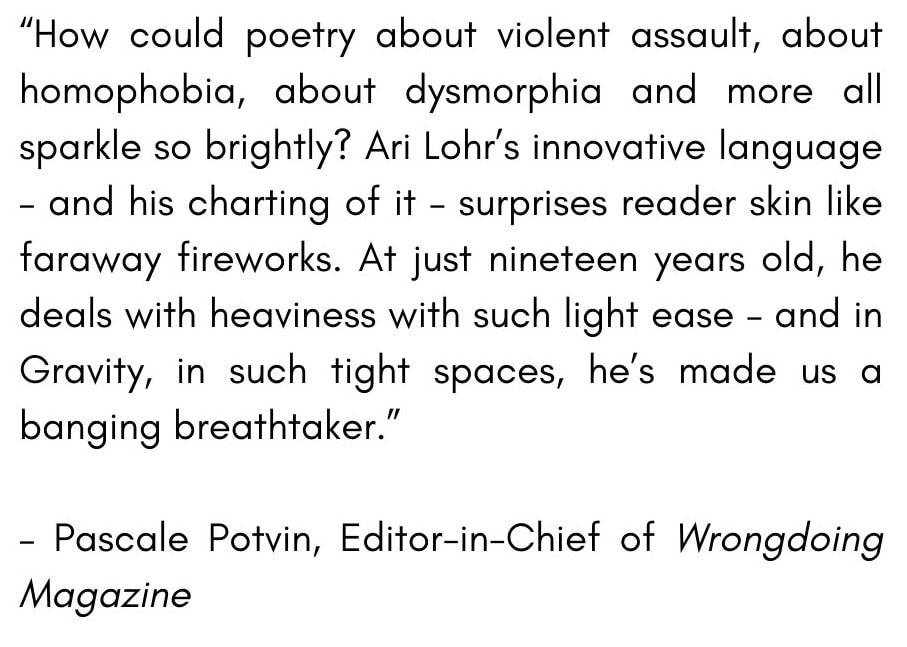
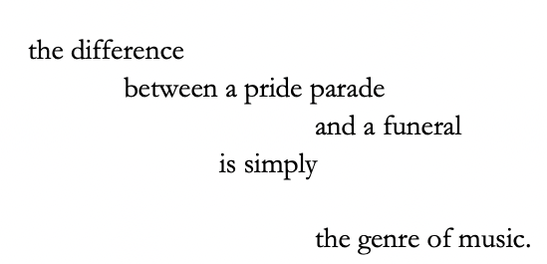
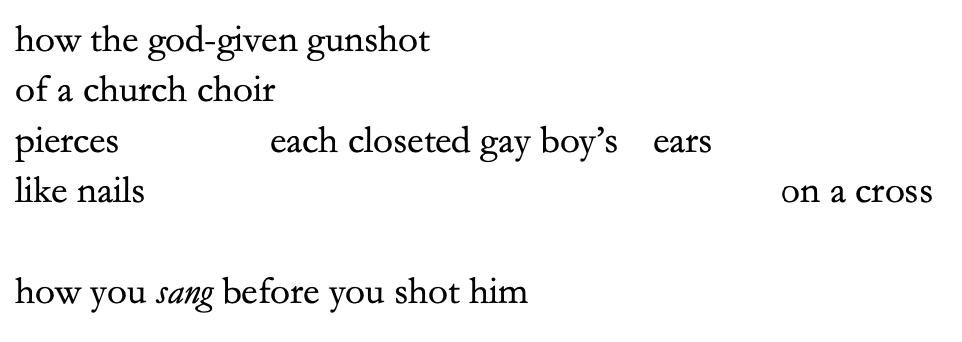
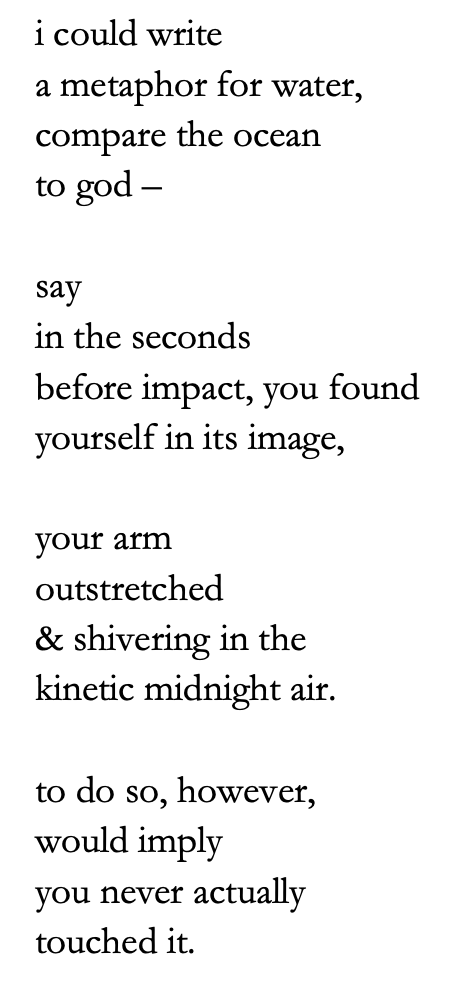
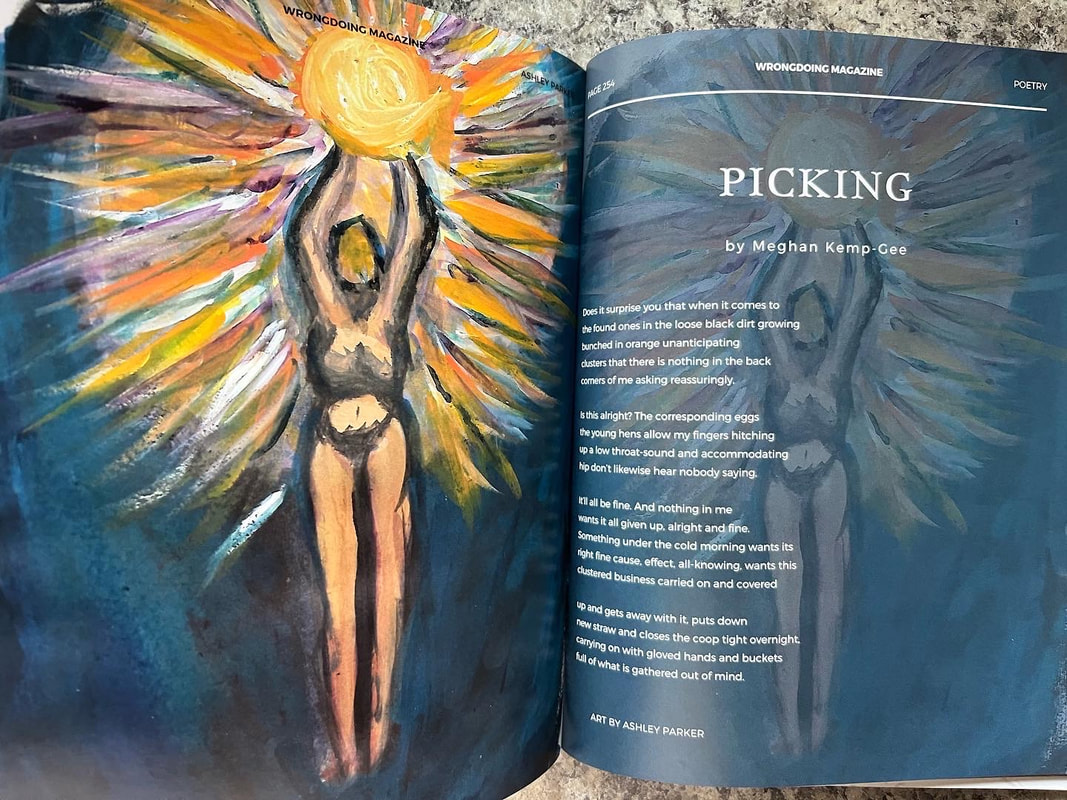
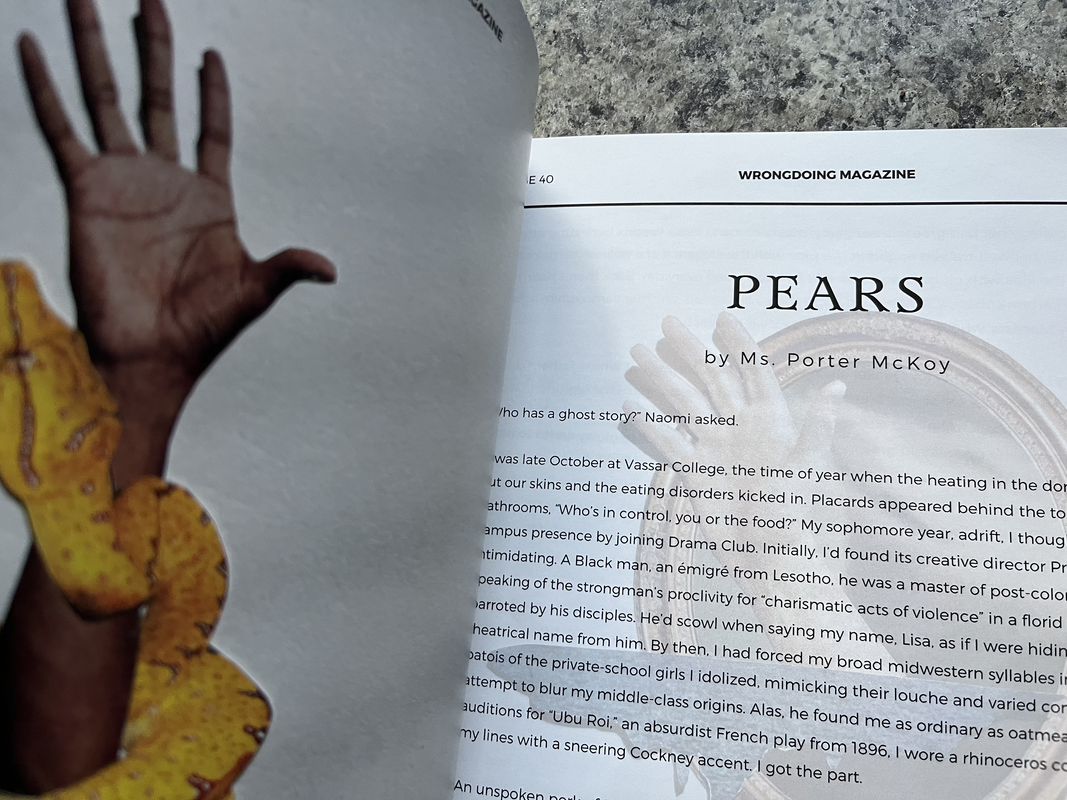
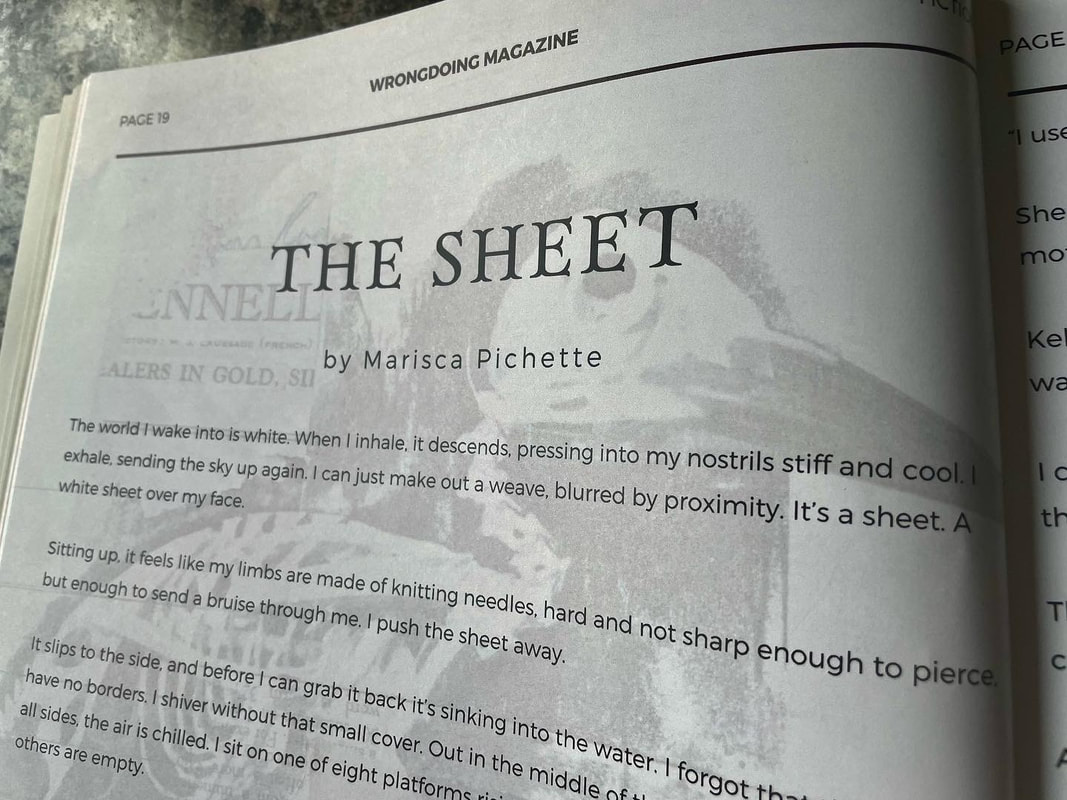
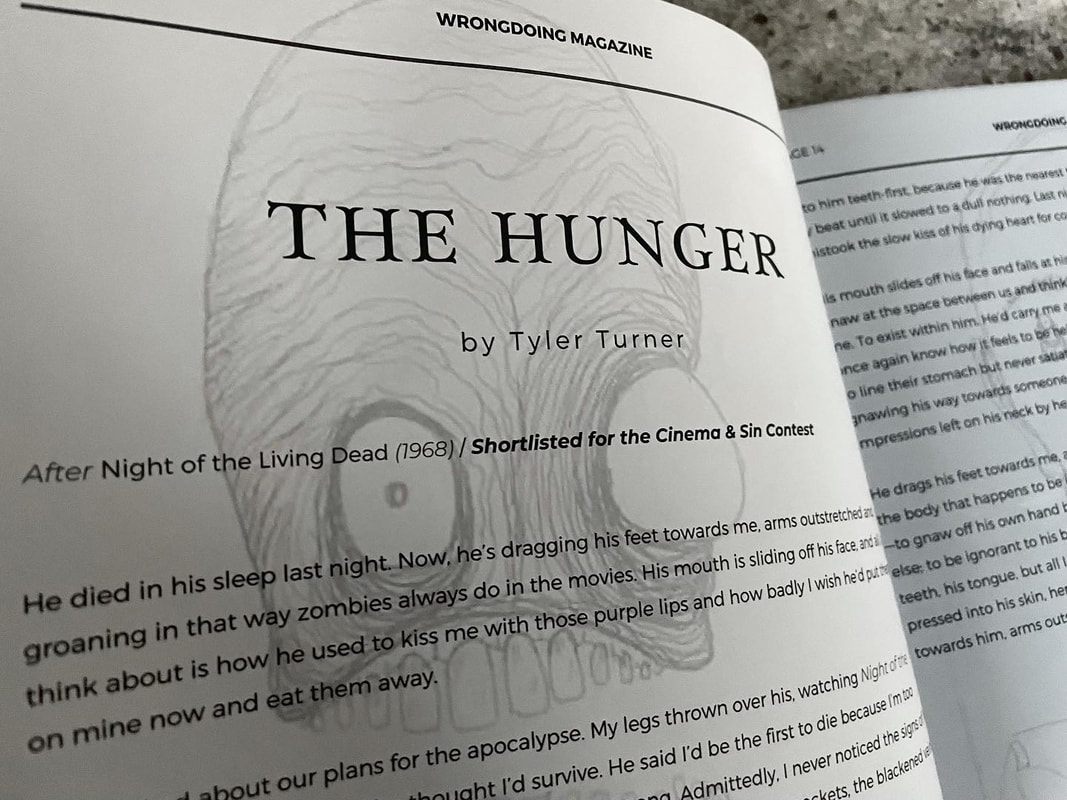
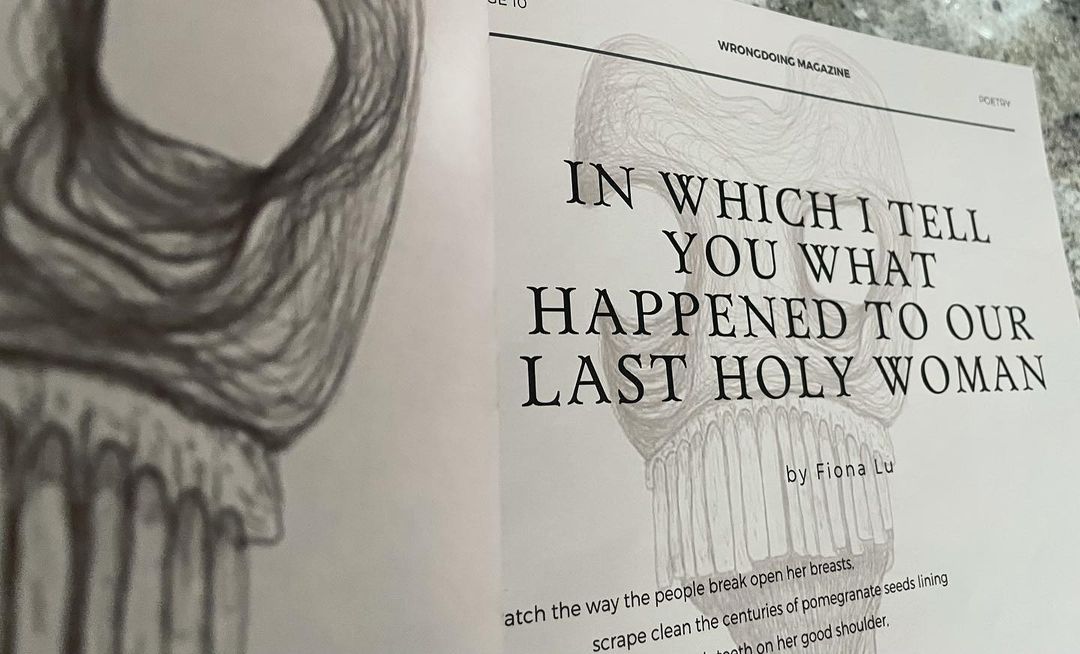
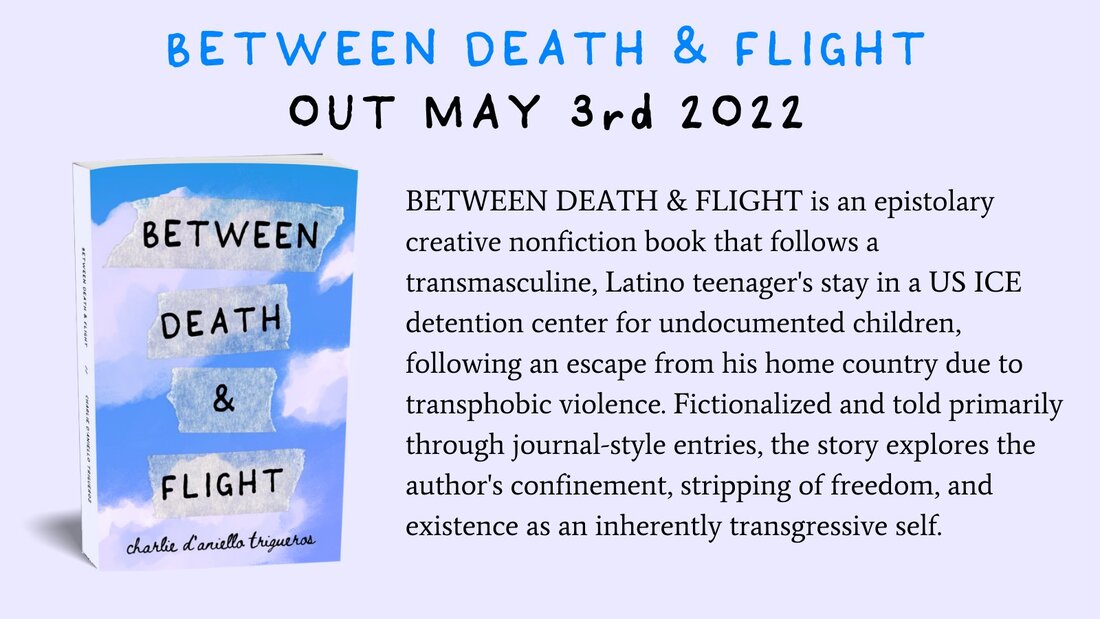
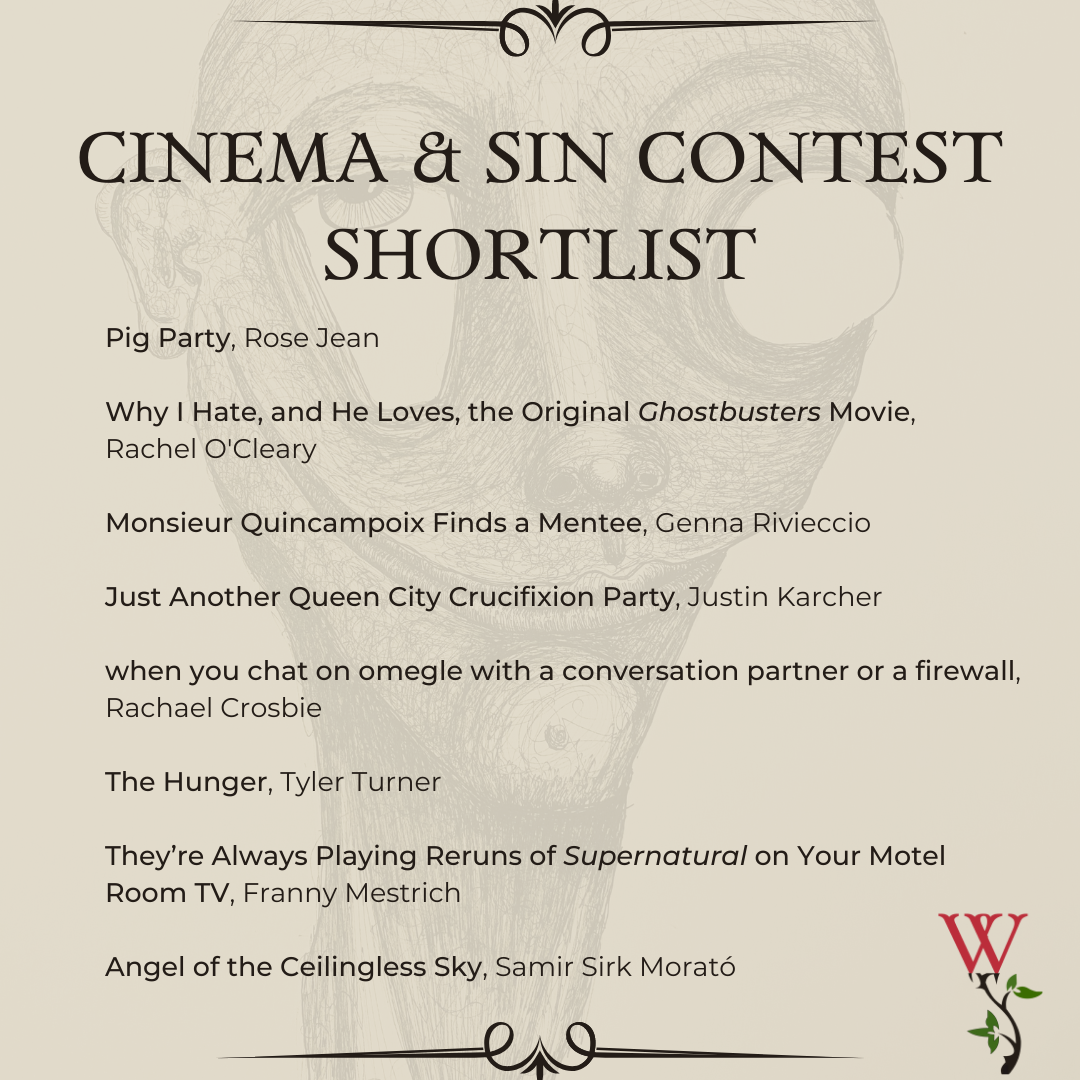
 RSS Feed
RSS Feed
